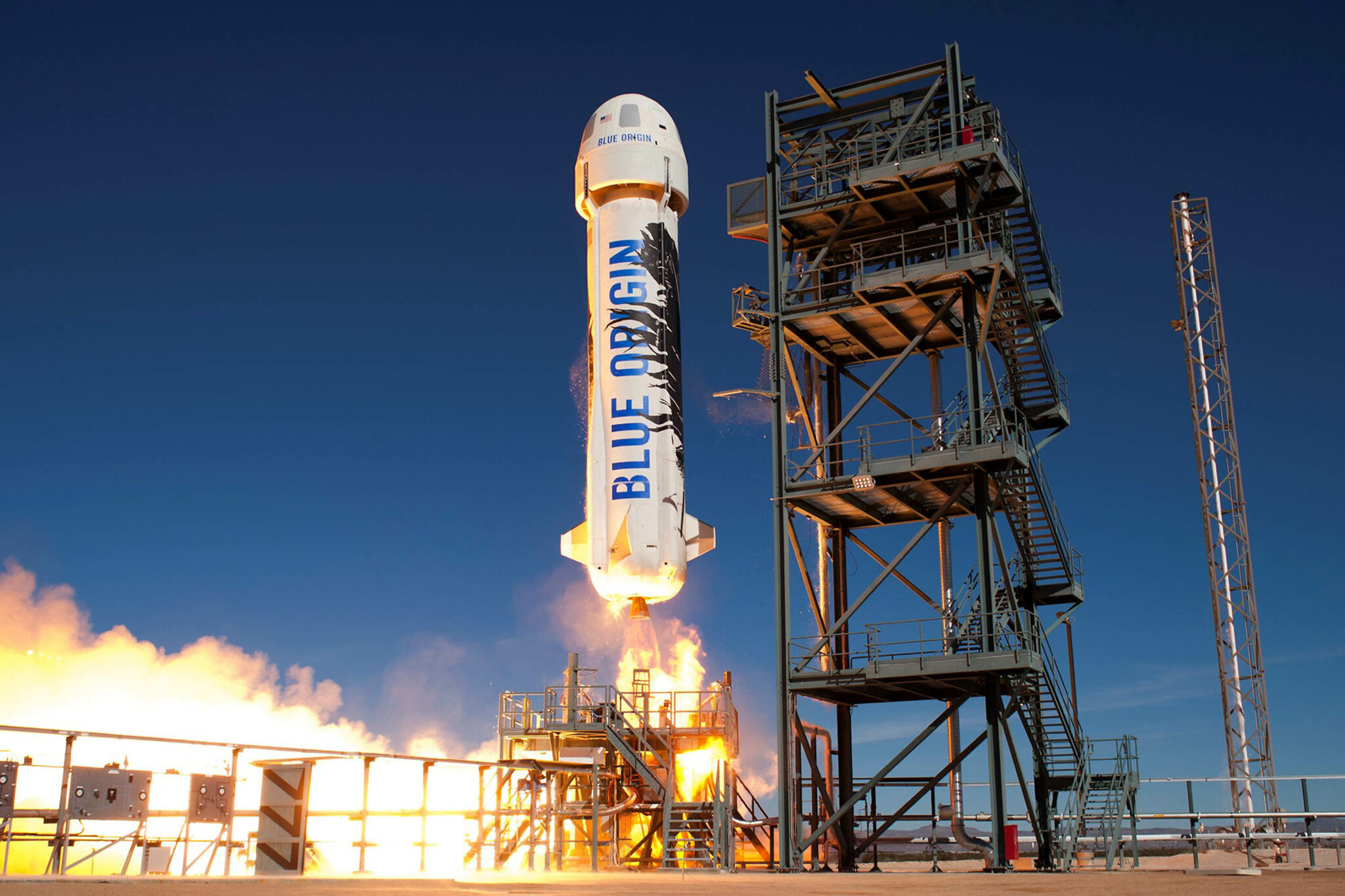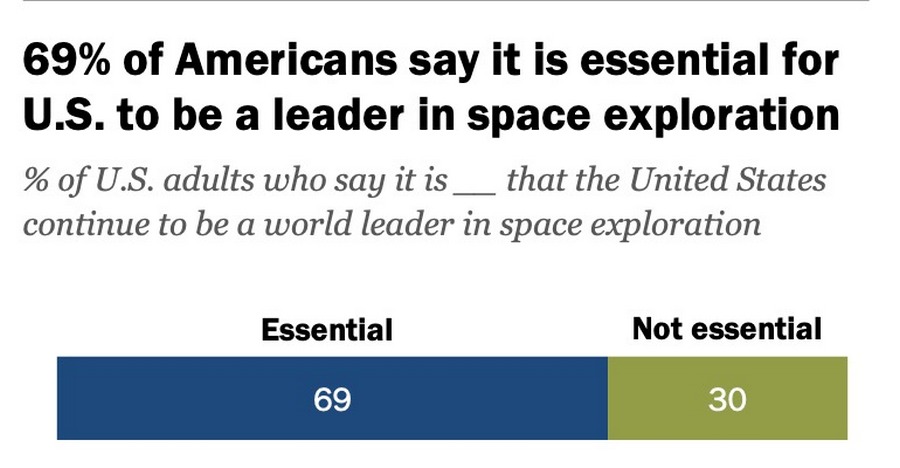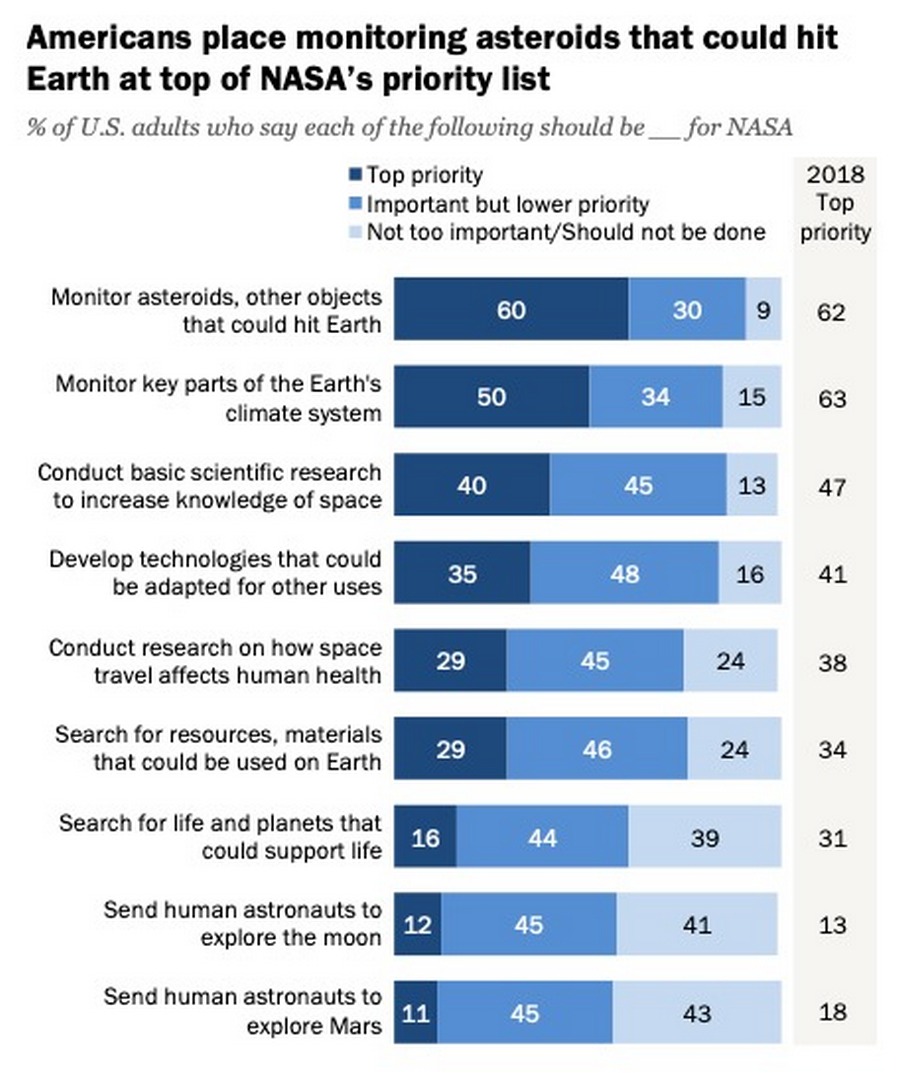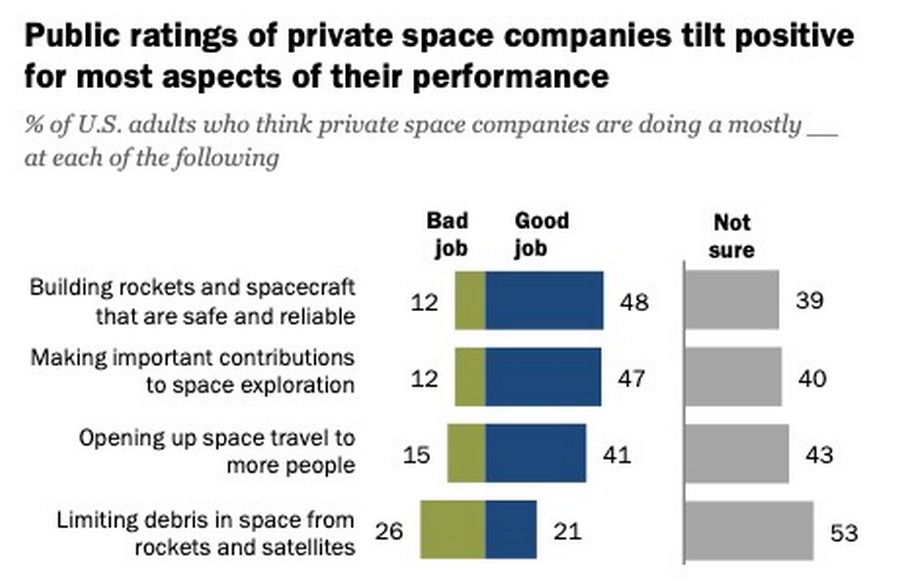Most Americans expect space tourism to become commonplace by 2073. But in fact, few people really dare to do it. A new survey has found that more than 50% of Americans expect to be able to travel to space within the next five decades.

In a new study, the Pew Research Center surveyed U.S. citizens to determine what they expected from space flight over the next 50 years. The survey shows that although more than half of Americans expect that space tourism will become a common phenomenon by 2073, much less of them would like to make such a trip. 65% of respondents said they would not want to fly into space if they had the opportunity.
The survey was conducted from May 30 to June 4 this year and covered more than ten thousand people to find out whether attitudes to space travel had changed over the past five years. Pew conducted a similar survey in 2018. Since then, the number of Americans who believe that ordinary citizens will regularly travel to space over the next half century has grown by 5%.

2018 was the year when SpaceX launched the first Falcon Heavy rocket. The total number of launches of the company for this year has reached a record high of 21. The NASA Space Launch System (SLS) rocket faced delays in development, but was on its way to the first launch in mid-2020. But the first launch of the SLS took place in 2022 for the NASA Artemis I mission. And this year SpaceX plans to carry out 100 orbital launches. But a lot has changed in the last 5 years.
Priorities for NASA
A Pew survey has shown that 69% of Americans consider it important for the United States to remain an international leader in space exploration. But the way this leadership is maintained, and NASA’s role in this leadership, compared to the role of the private space industry, is not as generally accepted.

The opinion of the respondents regarding the priorities of NASA showed that 60% of the participants named monitoring of potentially dangerous asteroids as a priority task. Slightly below 50% preferred monitoring the Earth’s climate. Significantly lower in the list of priorities – 11% and 12% of respondents – is the exploration of Mars and the Moon, respectively. But the search for aliens and planets suitable for life is the highest priority for NASA – 16%.
Positive attitude towards the private sector
As for the commercial side of the space industry, the public’s perception of private space companies, such as SpaceX, Blue Origin, or Virgin Galactic, is predominantly positive. But almost 40% or more said they were not familiar enough with the commercial space industry at all to be informed on these issues.

For those who are at least cursorily interested in the commercial space industry, private space companies have received mostly good ratings. 48% believe that the private sector is doing a good job of creating safe and reliable rockets and spacecraft. 47% believe that companies make a significant contribution to the space industry. 41% see the private space sector as a way to make space flights accessible to more people.
“Clean up after yourself”
However, in the private sector, they see the threat of clogging the Earth’s orbit with space debris. About 56% of people familiar with this issue believe that space companies are doing a poor job of controlling debris from their rockets and satellites.
As public opinion about existing and new space companies changes, 65% of Americans believe that NASA’s continued involvement in the industry is a critical component of its long-term success.
Earlier we talked about how to become a space tourist.
Follow us on Twitter to get the most interesting space news in time
https://twitter.com/ust_magazine

